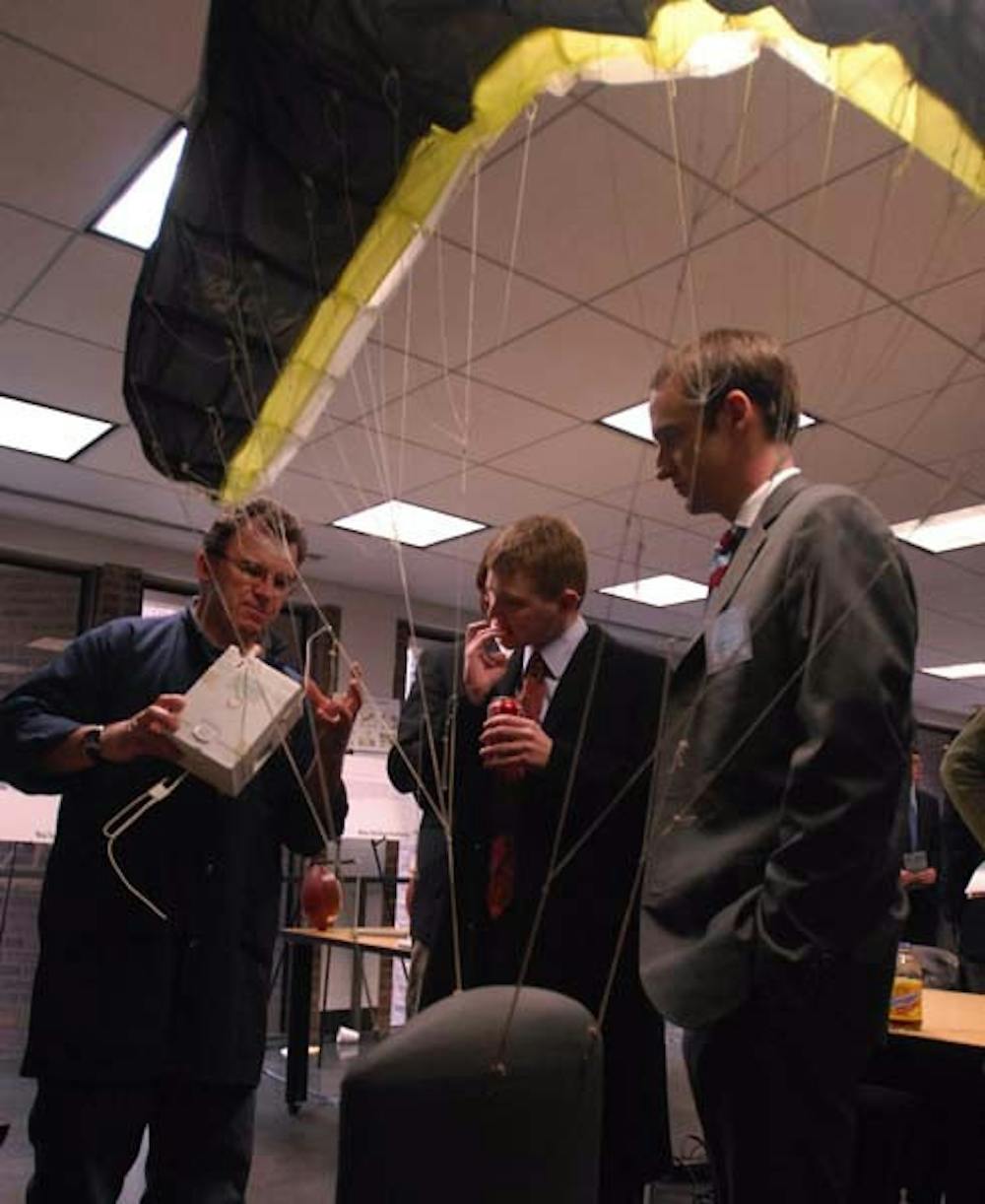
For Engineering junior Warren Jackson, a good idea has finally translated into $5,000 in cash.
Jackson's team, Radiosonde Recovery, secured first place at the Weiss Tech House's PennVention finals on Friday.
The team had developed a way to help research groups like the National Weather Services recover radiosondes more easily and economically.
Radiosondes, which are used to collect atmospheric data such as temperature, pressure and humidity, are usually launched to very high altitudes.
Once data have been collected, radiosondes parachute back to earth, where data are then collected and analyzed.
But the parachute's direction cannot be controlled, causing complications for recovery.
"It can land a couple of miles away," team member and Engineering Ph.D. candidate Kevin Galloway said.
His team's invention, an autonomous Global Positioning Service-based robot, solves this problem by steering it to a designated landing spot.
"Our next step is to get some researchers we can test [the prototype] with to show that it's feasible," Jackson said.
Innovative Protein Technologies secured second place - and $2,500 in cash - for inventing an automated solution for western blot system, a process used to identify individual proteins from within a complex mixture.
The western blot system is the only Food and Drug Administration-approved test for HIV.
However, "the current system is multi-step with a lot of manual intervention," team member and Biotechnology graduate student Noel Byrne said.
An automated approach that utilizes robotics and microfluidics could speed up the process, which can sometimes take a whole day.
"Our next goal is to build a working prototype," Byrne said.
He described winning second place as "awesome," especially in the face of such stiff competition from nine other finalists.
Third prize, $1,000 in cash, went to team Quicker Kicker, which developed a mechanical football holder for kicking practice.
Weiss Tech House director Anne Stamer said she was pleased with the overall quality of the presentations and technologies.
"Each year, we are constantly improving," Stamer said. "Not only in what [students] showed us, but [in] what they are planning on doing."
"One of the things that's nice about [PennVention] is that it takes into consideration the business side," said PennVention mentor Allison Rae of Paramount Industries.
She added that success isn't just about coming up with an idea - it's also about knowing how to market and sell a product.
Other prizes, including consultations with business professional and legal experts, were distributed among the other finalists.
The Daily Pennsylvanian is an independent, student-run newspaper. Please consider making a donation to support the coverage that shapes the University. Your generosity ensures a future of strong journalism at Penn.
DonatePlease note All comments are eligible for publication in The Daily Pennsylvanian.





